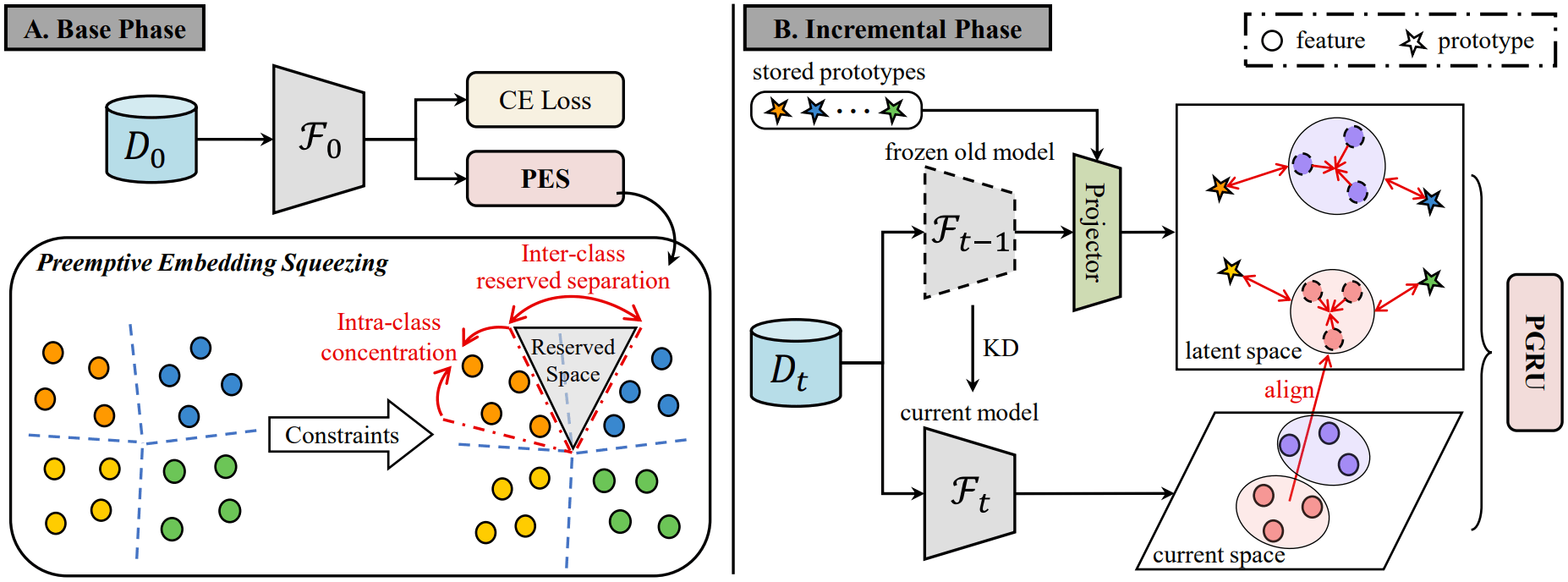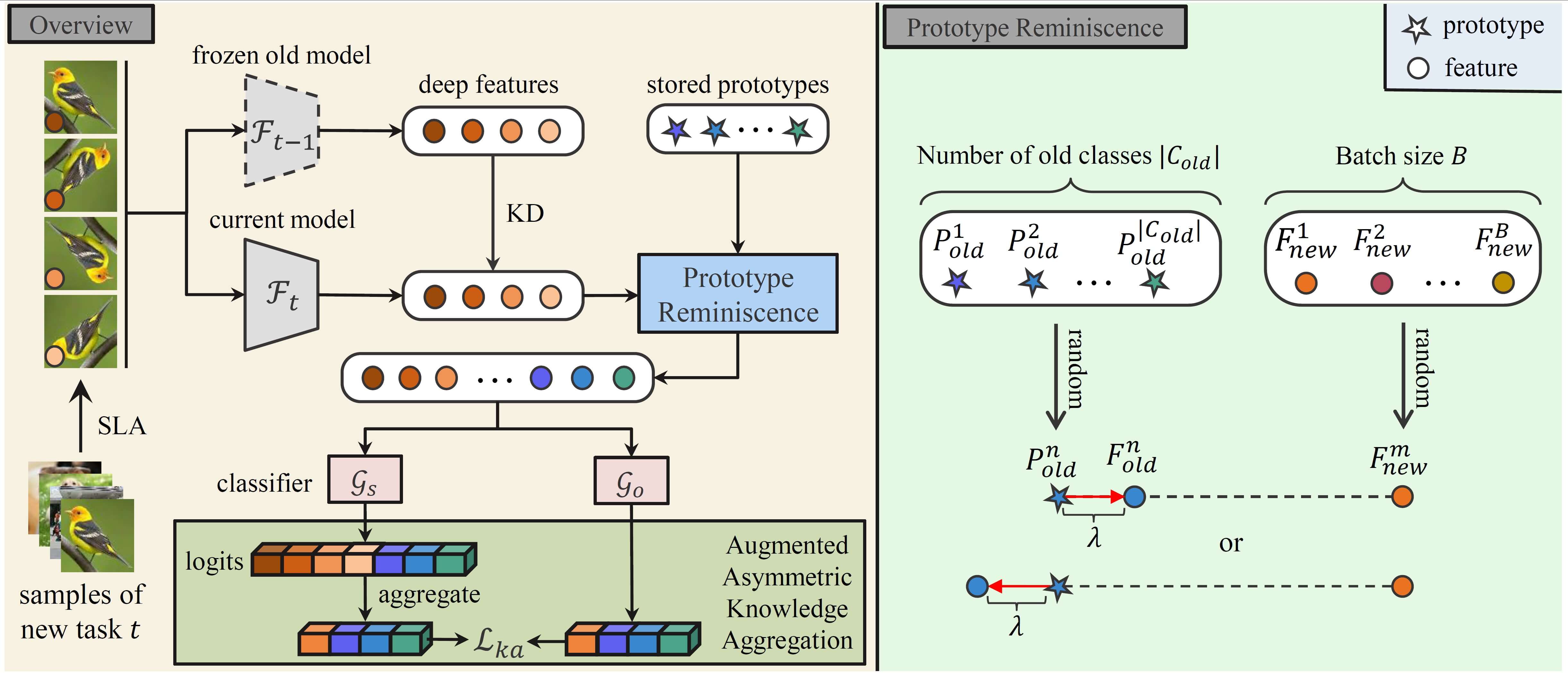Continual Learning
Continual Learning focuses on enabling models to learn and adapt to new data over time without forgetting previously learned information. It is crucial for maintaining the performance of AI systems in dynamic environments, allowing them to evolve as new tasks and data emerge, without the need for full retraining from scratch.
We aim to explore robust learning paradigms for continual learning and its applications in large models.
Highlight

Prospective Representation Learning for
Non-Exemplar Class-Incremental Learning
Thirty-seventh Conference on Neural Information Processing Systems
(NeurIPS), 2024.
We propose a Prospective Representation Learning (PRL) scheme to prepare the model for handling conflicts in advance. In the base phase, we squeeze the embedding distribution of the current classes to reserve space for forward compatibility with future classes. In the incremental phase, we make the new class features away from the saved prototypes of old classes in a latent space while aligning the current embedding space with the latent space when updating the model. The new class features are clustered in the reserved space to minimize the shock of the new classes on the former classes.

Prototype Reminiscence and Augmented Asymmetric Knowledge
Aggregation for Non-Exemplar Class-Incremental Learning
International Conference on Computer Vision (ICCV), 2023.
We propose a novel prototype reminiscence mechanism that incorporates the previous class prototypes with arriving new class features to dynamically reshape old class feature distributions thus preserving the decision boundaries of previous tasks. In addition, to improve the model generalization on both newly arriving classes and old classes, we contribute an augmented asymmetric knowledge aggregation approach, which aggregates the overall knowledge of the current task and extracts the valuable knowledge of the past tasks, on top of self-supervised label augmentation.